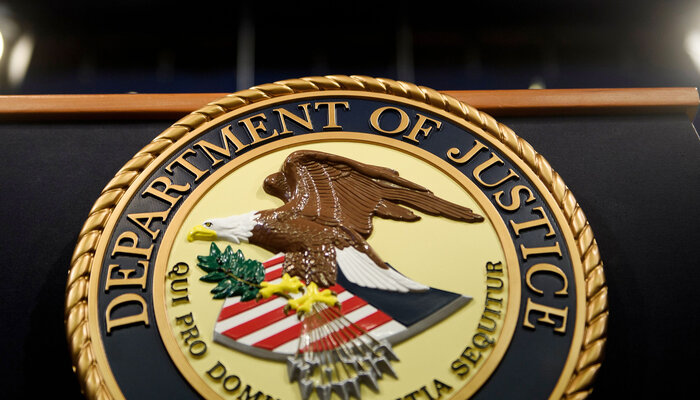In nearly a quarter of a century as a legal analyst I have sat through countless confirmation hearings for federal judges, Supreme Court justices, and attorneys general. There are two common threads that bind them together. There is always the disappointing failure of the senators to ask meaningful questions and demand meaningful answers from the nominees. And, in the case of Justice Department officials, there are always the promises of meaningful reform within the federal agencies under their control that end up vanishing into the ether when they actually get the job and have the power to bring about good change.
That cannot happen again when attorney general nominee Merrick Garland raises his hand and promises to tell the truth during his Senate Judiciary Committee hearing next week. With the rule of law in the balance, and insurrectionist forces at work in Congress itself, we need much more than the typical and often perfunctory exchange between senators and the nominee. So do the women and men who work at the Justice Department who endured four years of chaos and corruption under the Trump administration. And so do those who work in other federal law enforcement agencies that cry out for immediate and sweeping reform.
Garland must be asked during the confirmation hearing what he’s prepared to do to fix the Bureau of Prisons, still and always among the most dysfunctional of all federal agencies. Take the coronavirus. First, Bureau of Prisons officials failed to adequately protect their own staff and the incarcerated when the virus first spread. Next, federal officials failed to properly treat prisoners who became infected. Then, as Covid-19 bore down on the incarcerated, federal wardens blocked 98 percent of the compassionate release requests they received, even in cases where prisoners were suffering from stage 4 cancer with little time left to live.
The federal prison officials who proceeded with executions in December and January even as Covid-19 spread along death row in Terre Haute, Indiana, are still at their posts. So are other wardens around the country who continue to fail to ensure that mentally ill prisoners are adequately cared for before they are released. And those who continue to excessively abuse the use of isolated detention. So are prison officials who countenance violence and sexual assault against female prisoners. Not every federal warden is terrible. But there are enough terrible federal wardens who have been allowed to be terrible for too long.
Garland should be asked, point blank, if he is prepared to select a genuine reformer to lead the BOP. No recycled former warden who keeps failing upward to some other gig inside another prison. No outside consultant who has given consistently bad advice over decades. It has to be someone who is dedicated to meaningful change when it comes to compassionate release for elderly or severely ill prisoners. Someone who is committed to honestly assessing federal clemency requests so that more incarcerated people see their sentences commuted. Someone who will hold staff accountable for violence or deliberate indifference to prisoners.
The same is true of the nation’s immigration courts, which operate outside of the Article III power granted to federal judges under the Constitution and which have been laboring under the crush of new asylum cases over the past few decades. Trump’s toadies at the Justice Department took extraordinary steps to ensure that the judges handling waves of immigration cases were more likely than before to rule in favor of the government. They implemented policies designed to stymie the free speech rights of immigration judges. Then they saw an exodus of those fed-up-with-Trump judges from the Justice Department.
Garland has to clean up this mess in our immigration courts. And he has to do it at a time when the Biden administration is wrestling with the broader mess on immigration that Trump has bequeathed to it (and which Obama bequeathed to Trump and Bush bequeathed to Obama). The general principle should be obvious: Garland must make sure that immigration judges are chosen because they can be fair both to asylum seekers and other migrants and to the government officials seeking to detain or deport them. And those judges must be given the resources they need so they are not crushed by the sheer size of their docket.
Garland also should be questioned by senators about the U.S. Marshals Service, an arm of federal law enforcement that operates with little transparency or accountability. My colleagues at the Marshall Project, working with journalists at the USA Today Network, revealed last week that federal marshals shoot and kill an average of 22 civilians each year, many of them unarmed and wanted for nonviolent offenses. One reason for this deadly toll is the fact that these cops do not have enlightened use-of-force rules that might prevent deadly shootings. Another reason? No marshal has ever been prosecuted after a shooting.
The attorney general nominee should be required to explain whether he thinks this is okay and, if not, what he’s prepared to do about it. A Justice Department that says it is committed to criminal justice reform in general, and police reform in particular, cannot on the one hand prod local police departments over excessive force and secrecy concerns while its own agency operates brutally and without meaningful transparency and accountability. The Marshals Service needs new leadership, and a commitment to best practices, and Garland should be able and willing to promise that and then deliver on that promise.
Garland should be questioned at length by senators about the legalization of marijuana under federal law. Will his Justice Department rescind the anti-pot policies embraced by the Trump administration? What plans do Drug Enforcement Administration officials have to address the classification of pot among the list of hard drugs that make up Schedule 1 under the Controlled Substances Act? How does he plan to implement President Biden’s repeated campaign promises to reschedule the drug? Does he plan to oppose or support efforts by some Senate Democrats to advance federal legalization legislation?
I’ve written before that I think Garland is the right choice at the right time to lead the Justice Department. He has the experience, reputation, and temperament to restore a measure of credibility to an agency nearly ruined by four years of Jeff Sessions, Rod Rosenstein, Matthew Whitaker, and William Barr. Those four officials helped turn the Department into an instrument of Trump’s authoritarian priorities. There will be none of that with Garland. Nor will he flinch from the most important job he faces — responding with the full might of the DOJ to the growing and dangerous threat of far-right domestic terrorism.
That means rooting out white supremacist officers working in federal law enforcement. It means holding federal police to professional standards above those of local law enforcement officials. It means emptying the federal prisons of dangerous, abusive guards and negligent health care workers. It means, in the end, putting people into leadership positions at these agencies who have the courage and the wisdom to bring about meaningful reform. All of that won’t be accomplished in Garland’s first 100 days. Or in his first 500 days. Or even perhaps in the life of the Biden administration. But let him swear to begin.
The views expressed are the author’s own and not necessarily those of the Brennan Center.


